News & Agenda
News
14 November 2024
Tim Horeman in Link Magazine

'Medtech must learn to bridge its valley of death’
14 November 2024
How comfortable are cargo bikes actually for children?
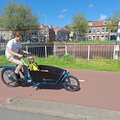
It’s impossible to imagine the Dutch street scene without the cargo bike. It’s ideal for transporting goods and especially popular for shuttling children from A to B. Surprisingly, however, no real research has been done on the comfort of children during cargo bike rides. Mechanical engineering students Jelmer, Renate, Dirk-Jan, Santo and Alexander set out to change this. The final project for their bachelor’s degree is the first step in this unexplored area of research.
15 October 2024
Jaap Harlaar bij Omroep Max
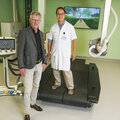
Can osteoarthritis be detected earlier in the future?
26 September 2024
Compliant DNA nanopores capable of size-selective molecule transport across cell membrane
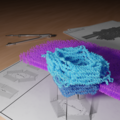
Scientists at TU Delft and the Max Planck Institute have made a new class of structurally adaptable ‘mechanical’ pores made from DNA that can transport molecules through cell membranes. These innovative nanopores can open and close on demand and, for the first time, adjust their diameter.
12 September 2024
Inaugural address: Powerful design capabilities crucial for addressing societal challenges
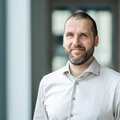
On Friday, 13 September, Professor Matthijs Langelaar will deliver his inaugural speech, Computational Design: Shaping the Future. In his address, Langelaar, who researches algorithms for solving mechanical design problems, emphasizes how advanced design capabilities can significantly contribute to addressing societal challenges.
26 August 2024
John van den Dobbelsteen at BNR Nieuwsradio

Can technology reduce stress in the OR?
22 June 2024
Bart van Trigt at Omroep West
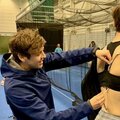
Innovations from TU Delft help the Netherlands win gold medals at Olympics
08 May 2024
Why do you start to walk like an elderly person at the age of 25?

In this video, Eline van der Kruk shows how your body changes throughout the years!
19 March 2024
David Abbink in Nieuwsuur about AI in robots

AI is already oftem used in robotics. Can these robots help with staff shortages?
07 March 2024
Personalized musculoskeletal models that reflect the diversity of body types
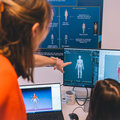
Musculoskeletal models in research are now based on the body of an average male. Scientists from TU Delft, Department of Mechanical Engineering, investigate how accurate these models are for a broad population. The one-size-fits-all approach could hinder proper treatment by doctors and physiotherapists. The researchers are therefore working on personalized musculoskeletal models based on a simple 3D scan.